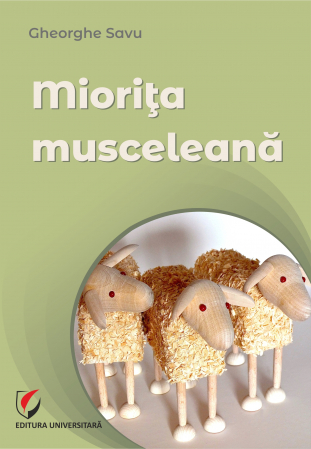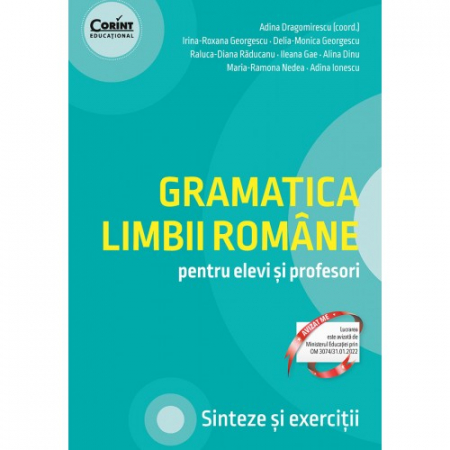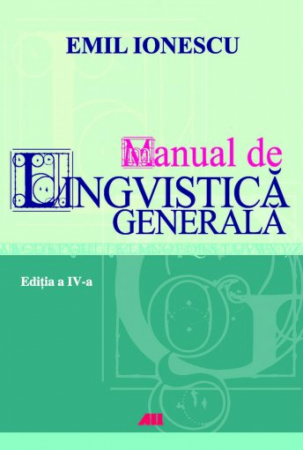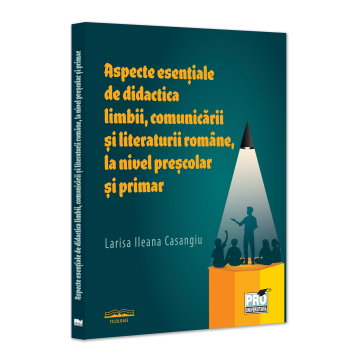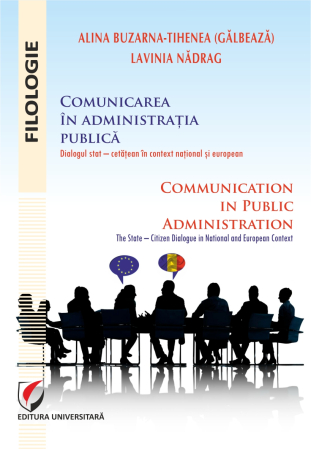ISBN: 978-606-28-0725-2
DOI: 10.5682/9786062807252
Publisher year: 2018
Pages: 210
Publisher: Editura Universitară
Author: Alexandra Codau
- Description
- Download (1)
- Authors
- Content
- Reviews (0)
The mentioned context, with major political, social, economic implications, did not avoid the written press in Romania.
Under financial pressures that it has not faced before, but based on its own crisis of legitimacy, the written press has chosen to withstand the economic crisis, but at the cost of its own quality. Giving up the rigor in expression and not always adapting the language to the situation, the written press suffered a dysfunction in its relationship with the reader, who considered himself deceived in his expectations and somehow betrayed by what the press means as an extension of today's society. Through slips and changes of meaning, the written press operates, linguistically, resemanticizations as generous as they are harmful to the reader, because, in reality, they do not enrich the language, but only diversify the language of the press and not necessarily in the long run.
The Center for Independent Journalism (CJI) published, in May 2015, the report "The state of the Romanian media sector in 2014. Vulnerabilities and solutions", a report that presents, synthetically, the most significant problems faced by both the journalistic profession, but and media business. Conducted between October 2014 and April 2015 - a time when more than a hundred managers, journalists, editors from the local and national press were interviewed, - the CJI report highlights that 2014 was marked by a crisis in the media in Romania. "The public considers that the media are deeply flawed, deplores the fate of quality content, sometimes condemns the slippage in the media, but is not willing to pay for content and does not sanction by changing consumption habits the media that, in fact, criticism ”(CJI 2015: 4). In the same study it is mentioned that, “in the 2014 election year, professional slippages have multiplied. Language is severely damaged, aggression has increased, both nationally and locally ”(CJI 2015: 4). The slippages of the discourse and, implicitly, of the journalistic language do not manifest, therefore, in a single area, they being noticed both locally and at the central level.
The authors of the report also talk about the decapitalization of Romanian media companies, companies that, year after year, record losses. "Local publications whose profit was, in 2008, of approximately 150,000 euros, ended up in 2014 recording constant losses. And the central ones do not feel better either ”(CJI 2015: 6). As for what led to this state of affairs, the IJC report states that the first and most visible cause of this financial hemorrhage is the collapse of the media market due to the economic crisis launched in 2009. "The advertising market is now at a low price. more than half of 2008. It is impossible to offer the same products, at the same quality, with only half of the initial income and in the conditions of general cost increases, of which the one with labor is not the smallest ”(CJI, 2015: 6-7).
The economic and financial crisis that began in 2009 therefore continues to produce effects in the media field, even a few years after its onset. Conditioned by this crisis and having as its own salvation from extinction, the written press in Romania has made a series of compromises, both in terms of content and language. It should be mentioned that we are talking about the written press, and not about radio or television because the written text, either on paper or in digital format, "has the ability to place the reader in a different mental process, based on a reflective act, with intellectual development, and not on a reactive, emotional one ”(Agnes 2011: 17). The written press has, in our opinion, this advantage over the audio-visual: it allows the reader the ability to deepen.
Another clarification is required here, namely that by the current Romanian press we mean "the press of recent years - and not the press of the entire post-December period, which, although it has many common features, is not absolutely unitary, attesting, especially in the last decade, a series of important changes compared to that of the '90s ”(Vintila-Radulescu 2009: 328). It is, among other aspects, the phenomenon of digitalization, which has radically changed the way we approach information, but also the way in which journalists and readers relate to the language of journalism.
The premise from which we start in this paper is that the language of the written press suffers the slips mentioned precisely against the background of the financial crisis. Moreover, they are caused by it. We notice, in fact, a chain of existential conditionings, which put the written press in the ungrateful situation of a deprofessionalization, of the dramatic decrease of the quality of the journalistic act. In this way, the power of the print media to act as an intermediary between information and the public weakens. Just as it weakens, moreover, its capacity for significance in a post-communist country where the press was, more than other institutions, support, landmark, reception grid, translation of reality for individuals.
We propose that this paper not be an accumulation of generalities, a series of clichés but, on the contrary, to be a study that allows to know the inventory of the effects of a deep phenomenon - financial-economic crisis - which had considerable consequences on language. written press. In this sense, we will analyze situations and examples from the daily press in Romania.
The author
-
Limbajul presei scrise din Romania in contextul crizei mediatice
Download

Alexandra Codau teaches Journalism at the Faculty of Letters of the "Ovidius" University of Constanta, a specialization he graduated in 2007. She is a journalist with over ten years of experience and has worked in the most important print and television newsrooms in Constanta. Currently, he collaborates with magazines and central platforms.
In 2018, he published, at the University Publishing House, the work "Writing techniques in written press".
Introduction / 7
1.1. Argument / 7
1.2. Objectives of the paper / 10
1.3. Documentary sources / 12
1.4. Research methodology / 15
1.5. Terminology of the paper / 17
1.6. Structure of the paper / 21
2. Media crisis / 25
2.1. The effects of the financial crisis on the written press in Romania / 25
2.2. From the financial crisis to the image crisis of the press / 37
3. Language, expression of media culture. The slippage of journalistic discourse during the crisis / 71
3.1. Slips / changes of meaning in the language of the written press / 71
3.2. The stylistic values of slang in journalistic discourse / 109
3.3. Clichés of journalistic language in the daily press / 136
3.4. Marks of aggression in journalistic language / 160
4. The written press, between the desideratum of communication and the economic imperatives / 169
4.1. Distortion of reality. Manipulation and persuasion in the language of the written press / 169
4.2. The ambiguity of journalistic language / 180
4.3. Marks of the theatricalization of the journalistic language, results of the financial imperatives from the written press / 186
5. Conclusions / 194
Abbreviations / 202
Selective bibliography / 203

6359.png)
![The language of the written press in Romania in the context of the media crisis [1] The language of the written press in Romania in the context of the media crisis [1]](https://gomagcdn.ro/domains/editurauniversitara.ro/files/product/large/limbajul-presei-scrise-din-romania-in-contextul-crizei-mediatice-307-957986.jpg)
